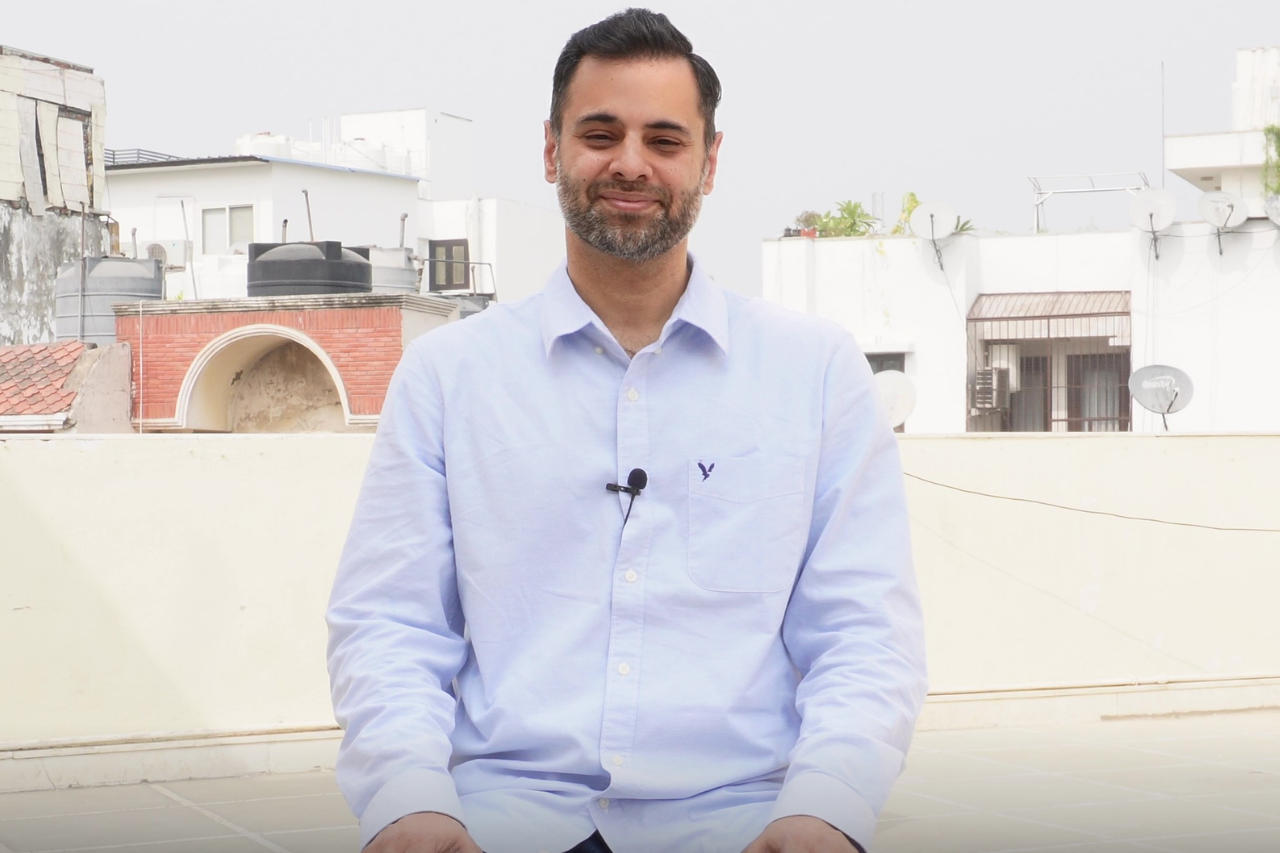If life can be summarized in one sentence, it would be “relationship with the other.” The emphasis is on the word “other,” Which is not merely a physical entity like another human being, place, or animal, but includes subtle entities like thoughts, ideas, beliefs, feelings, sensations, and more.
What is our relationship with our thoughts? Is it a good one that brings peace, or are we in conflict? Is our mind continually lost in unconscious rumination of the dead past or an imaginary future?
Are we receptive to the joy of the present moment? Or are we lost in an endless pit of chaos, conflict, and confusion? How do we eliminate this conflict? That is what spiritual seeking is all about, and peace has to be found through relationships. That is what this journey is all about.
We are not merely seeking a vague and preconceived idea of happiness but opening our minds to the possibility of now. It requires an investigation or inquiry into the nature of our relationships. I can truly be at peace with another when I’m truly at peace with myself.
Trying to “fix” the other in the hope that they change and conform to my ideas and beliefs is doership at its core. It is a recipe for further pain and suffering. Unfortunately, that is what our relationships have reduced to nowadays. Everyone trying to change the other on the basis of personal beliefs.
It is not about completely abandoning your personal ideas and beliefs. It is about examining your relationship with them because that dictates your relationship with people.
Nowadays, there is a lot of advice on what to do and not to do in a given situation. None of that works until you pause and reflect on your own thoughts. Where do they come from?
Doership is the idea that we are the doer of our actions. The belief that that which creates hurt in me is the action of the other, may it be a friend, parent, spouse, coworker, distant relative, business partner, or any other acquaintance.
This faulty understanding creates conflicts in relationships and makes life miserable not only for ourselves but also for others.
Another understanding is that though we appear to be separate, what powers life and relationships is the same Consciousness that runs through each one of us.
Therefore, it is the Consciousness that makes events happen and not the individuals. Examine this! What I don’t like about another is something buried deep within my own shadow. Things that I am not consciously aware of cause discomfort.
And what I resort to in dealing with such discomfort is to create a diversion by projecting on another rather than investigating the source of my discomfort.
When I condemn, blame, and criticize others, it is my defense mechanism to avoid the painful image of myself that I carry within. Only a mind that is rooted in conflict is capable of such actions.
Therefore, through such actions, I strengthen that image which exacerbates the separation between the “me” and the “other.” Though I long for peace and harmony, my actions bring about chaos and conflict. But something beautiful happens when I am able to see my identification with the content of my mind.
I discover that I am not the doer of my actions. I further discover that even the others are not the doer of their actions. And in that moment of spiritual awakening, the separation between me and the other ends. I become one with the other.
If my relationship with the other is uncomfortable or abusive, I’m perfectly okay with getting out and moving on without binding myself to that person with feelings of anger, hate, or resentment.
I choose to free myself and also free the “other.” I fully acknowledge that I suffered, but this moment or now is the only reality where I’m conflict-free.
In such a state of awareness, the mind becomes incapacitated to feel hate, blame, malice, jealousy, fear of abandonment, or any other negative emotion in relation to the other.
What resides in the unconsciousness comes out into the conscious surface of the mind and burns. I find myself in communion or “Yoga.” I realize that it is the same Consciousness that animates this world of names and forms.
Therefore, I consciously recognize thoughts that perpetuate suffering by creating separation. It is so amazing that this simple understanding brings about such a beautiful transformation in our relationship dynamics.
We realize that the people who push our buttons and triggers are the ones who teach us the most. I’m not saying that you should deliberately get your buttons pushed, but recognize when it’s happening.
The inquiry or investigation into the nature of life happens only when the individual or “me” suffers. It leads to the loosening of identifications which disperses to contracted energy called “me.” What remains is the boundless energy or the pure awareness that is our true nature.
One of the most challenging aspects of relationships is being mindful of our communication style with others. Sometimes our thoughts are not in sync with the words we utter. We accidentally end up saying something hurtful despite not having the intention to do so.
It’s not just our words but our whole body language that takes part in the communication. What to do when the other gets hurt? And my answer may come as a shock to you, but there’s nothing you can do. If you feel that your actions have hurt someone, you can surely apologize as an act of compassion.
But you can’t “do” anything to make the other be okay with you or like you. In times like these, we should be compassionate to ourselves also because the words that came out of you were really not yours. They came from years of conditioning that probably had irked something unpleasant at that moment.
There is no point in feeling guilt or shame for what was done because it was not your action. Now, this is not to evade responsibility. We certainly know that unkind words were said, and hurt was caused through the mind-body organism that is you.
Therefore, apologizing at the moment is perfectly fine. But carrying a load of guilt for something that was not your action is useless. Yes, you may feel a bit of regret for some time, but no point calling yourself names and labels and carrying the load of guilt and shame.
The ego likes to bring attention to itself, either through pride and arrogance or through guilt and shame. They are two sides of the same coin. It does that by keeping alive the separation between “me” and the “other.” So how does this separation dissolve?
It begins with self-acceptance. I’m the way the creator designed me. Of course, it is not a license to do what you like. Remember, if you “think” that you’re not the doer, then “you” must know that you’re also not the receiver of consequences. But consequences of actions will happen.
Duality is an action-reaction loop. Watching one’s own behavior and how we react to situations and circumstances brings about an awareness that frees us from the suffering of incessant thinking. For example, we all are people-pleasers to some extent.
We abhor the idea of others disliking us. We’d rather suppress our emotions than confront others. And the instant reaction of the thinking mind is, “I should not be a please-pleaser because it’s toxic.” The need to not be a people-pleaser is also based on some idea of right and wrong, and the urgency of change is based on some form of conformity or seeking society’s validation.
I’m not telling you to be or not be a people-pleaser. See why the people-pleasing is happening and investigate who is doing it, and this whole problem will dissolve. Trying to be or not to be a certain way is also a mechanism through which the “me” thrives. The “me” is the root of all conflicts. We spend our whole life chasing an illusory image of perfection that is just an idea in our heads.
We get so engrossed in “becoming” that we forget to “BE.” This relentless drive to change to become better is a reinforcement of the thought that “I am imperfect right now.” This obsessive need to change is fuelled by society, friends, family, psychologists, philosophers, teachers, and spiritual Gurus.
And behind all of this unconscious chase is the fear that I’ll become irrelevant if I don’t change myself. I will suffer. I will be lonely. I will not survive in this world of high expectations. The greatest paradox is that the “I” trying to overcome suffering is the very source of it. The “I” or “me” by itself is separation, and hence, suffering.
In a bid to become better, we avoid facing what we truly are. The thought that I should not be a people-pleaser is actually a diversion from recognizing that that’s what is happening. The whole strife and the corresponding movement are based on an illusion, including the one chasing perfection.
In “being,” there’s no personal self contemplating or trying to become or achieve anything. In being, you are simply the pure presence. And in presence, things happen, but there is no difference between the “me” and the “other.”
It’s a huge relief because then there are no expectations with oneself or others. With all that nonsense gone, we remain free from the load of doership. We accept ourselves for who we are. And when we learn to be comfortable with ourselves, we become comfortable with others.
Being comfortable with others does not imply being okay with everything. We can certainly have boundaries, but those boundaries come out of compassion and not ego. The ego does not know compassion. It wants to be right at all costs and according to its perception of what is right and wrong.
When the separation drops, there remains no need to change or control anyone. If you don’t get along with someone, you can surely limit or end that relationship, but there is no bitterness towards them. There is no compulsion to change them.
When we are deeply entrenched in doership, we use blame, shame, and guilt as weapons to control and manipulate others. We do it now, and we have all done it in the past. And in that process, we keep moving farther away from the source of pure love that is here and now.

